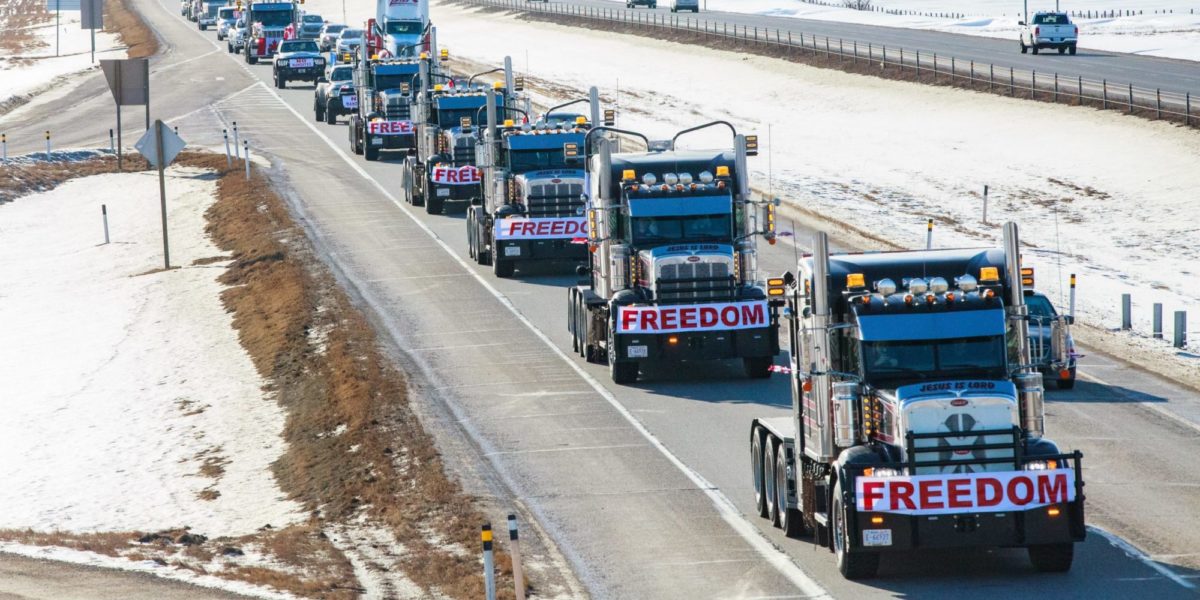The public hearings on the Emergencies Act are ending — climactically I guess is the idea — with the prime minister. But as a viewer I was more gripped by the opening scenes, with protesters/truckers/occupiers on the stand. They embodied more contradictions, raw feeling and so, potentially, more insight.
Everyone wants to think their moment in the glare of history is the biggest ever, so it’s not surprising they claimed that about their honk-in. There are other contenders: the Oka crisis, the Winnipeg general strike, Idle No More. But what struck me was their sense of entitlement. Not righteousness — everyone thinks they’re right — but their shock at being treated as other protesters are.
Even this week, when “Freedom Convoy” lawyer Brendan Miller spotted a minister’s minion in the room, he asked the commission head to pop the guy onto the stand to answer Miller’s questions about some theory. It wasn’t just grandstanding to make a speech, which happened often, say, at U.S. anti-Communist hearings in the fifties. Miller seemed to actually expect a win.
These people say proudly they’ve never had trouble with police, that they have friends and family in police or military. And they do seem to have received info from police sources in Ottawa. They feel nothing in common with groups who live in lifelong fear of cops. I’m not saying they’re privileged. But they live on the safe side of the line that demarcates marginalized, vulnerable groups. It’s what you cling to when more direct forms of privilege start to teeter, as happened in the 1960s with empowerment of racialized groups, women, Indigenous peoples, etc.
In fact, some seem a bit obsessed with the sixties and finally getting a piece of that action. As Rabble-rouser Pat King said, “I’ve never seen anything as loving and peaceful in my life. It was Woodstock.” Organizer Tamara Lich — far more likable and plausible — called it a lovefest. There are emotional dividends to being marginal, as there are to being white, other things aside.
So it was the arrests that seemed to most unsettle them. Lich, who said convincingly that she’s not easily offended, also said she sobbed in her hotel room at the thought of her husband seeing her arrested. For the life of me, I can’t see why. Surely she should be proud, as should he, and generations before them. (In the sixties they sang, “If you’ve been to jail for justice, you’re a friend of mine.”) She’s upset that her trial isn’t till September, but what of those who spent decades in jail, like Steven Truscott, while innocent? Or others, interned for years during the wars for being Ukrainian, German or left wing?
It’s this lack of empathy, the failure to extend your own dismay to the plight of others when it’s staring you in the face, that seems to me the fatal human flaw. We retreat into particularity, instead of generalizing into common cause.
“No one else would’ve got three weeks with that kind of coddling,” a pissed-off protest veteran told me. The best parallel may be the 1935 On to Ottawa trek that began, via boxcars, in B.C. They didn’t make it past Regina. They were attacked by Mounties, routed, two people died, hundreds were injured. End of “convoy.” They’d probably have been grateful to make it to Winnipeg.
This column originally appeared in the Toronto Star.



